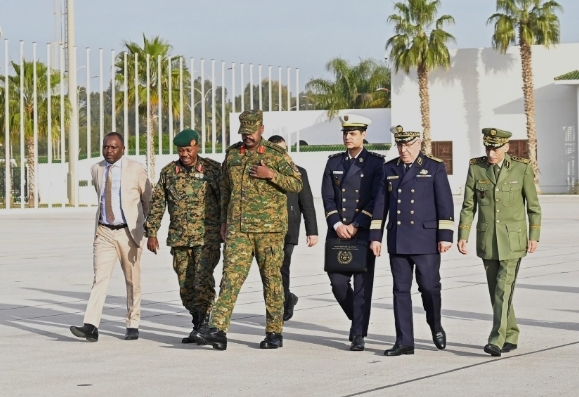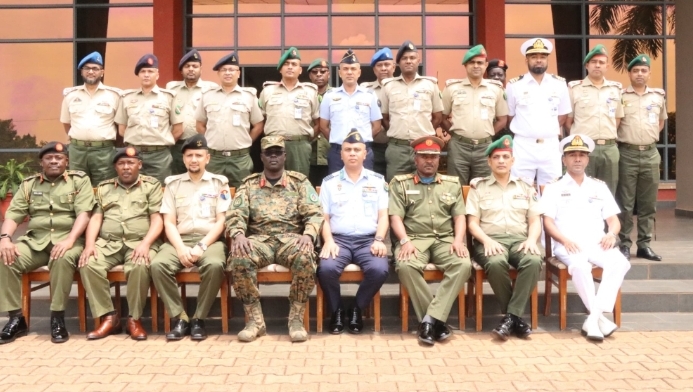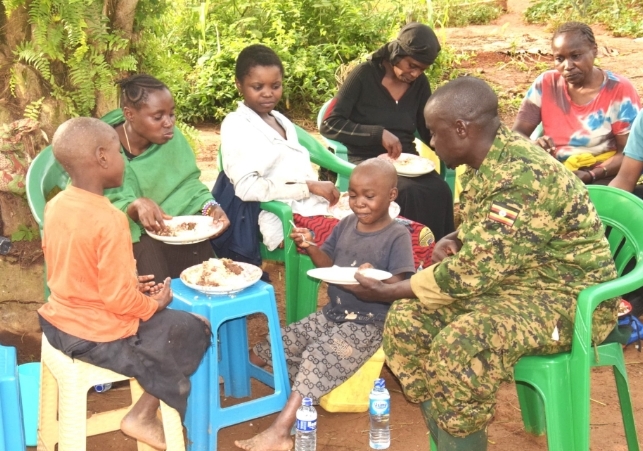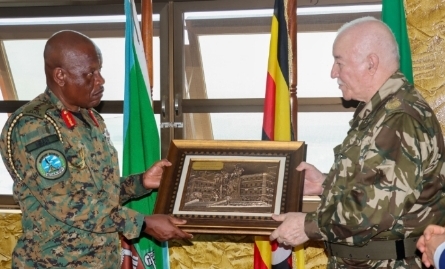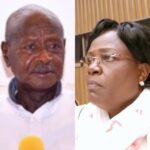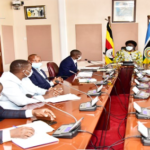On Friday, UPDF army officers paid tribute to Ignatius Kangaave Musaazi, a fallen hero and nationalist at Kololo Independence grounds on the eve of the “Africa Kwetu” trek.
Brig. Gen. David Kyomukama Kasura, the #AfricaKwetu trek commander, used the event to give the walkers guidelines on the eve of the start of the Great Trek which started Saturday morning at Galamba in Wakiso and headed to Bukatira in Nakaseke on leg one.
Musaazi is an icon of Uganda’s political history and independence struggle.
Musaazi formed the 1st political party in Uganda, the Uganda National Congress (UNC) Party on Sunday 2 March 1952.

As a man of ideological clarity, he demonstrated that people don’t have to follow a leader as a person but must follow the person’s ideas and methodologies.
Musaazi was imprisoned 37 times by the colonial gov’t for leading the independence struggle.
He is revered for founding the first farmers association, trade union and political party in Uganda.
He also conceived the UNC as a branch of a global movement that had other branches like the African National Congress (ANC) of South Africa.

In fact, the UNC’s launch date was deliberately chosen to coincide with anti-colonial events in South Africa; it coincided with the Boer day, to express solidarity with the struggle of the South African people against apartheid.
Musaazi was a selfless pan-Africanist who strived for a better Uganda rather than live a comfortable life.
He remained around to criticise and organise internally against the Amin regime while many that had been key beneficiaries of independence ran into exile.
Yusuf Lule
Senior army officers also paid tribute to former Ugandan president and chairman of NRM/NRA (1981-1985) Prof. Yusuf Kironde Lule at his burial site at Kololo Ceremonial Ground.
Lule (10 April 1912 – 21 January 1985) served as the President of Uganda between 13 April and 20 June 1979.
As the leader of the Uganda National Liberation Front (UNLF), Lule was installed as President after neighbouring Tanzania ousted Idi Amin with help from the UNLF after his failed attempt to annexe portions of Tanzania.

Lule was the first of a swift succession of Ugandan leaders before the eventual return of Milton Obote in 1980.
Lule’s government adopted a ministerial system of administration and created a quasi-parliamentary organ known as the National Consultative Commission (NCC).
The NCC and the Lule cabinet reflected widely differing political views.
In June 1979, following a dispute over the extent of presidential powers, the NCC replaced Lule with Godfrey Binaisa.
Out of office, he led the Uganda Freedom Fighters (UFF), a resistance group which joined with Yoweri Museveni’s Popular Resistance Army (PRA) in 1981.
The combined National Resistance Army (NRA) eventually succeeded in overthrowing Tito Lutwa Okello and taking power in 1986.
Lule died on 21 January 1985 at Hammersmith Hospital in London of kidney failure.edge
![]()


